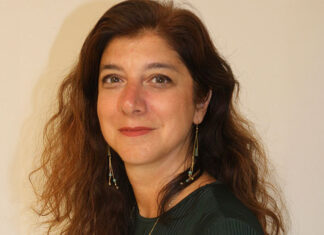By Hrayr S. Karagueuzian
In 2014, during an international cardiology conference in Antakya, Türkiye (new official name for Turkey), I asked my Turkish colleague Dr. Mehmet Ali Oto a direct and sincere question: Could Türkiye ever recognize the Armenian Genocide? Dr. Oto, a leading cardiac electrophysiologist in and then-President of Hacettepe Medical Center and University in Ankara—did not pause. His response was swift, unambiguous, and chilling: “It is impossible.”
Both of us were members of the Heart Rhythm Society in the United States. He had taken a keen interest in my research on atrial fibrillation and had invited me to a lecture at a cardiology conference he was organizing in Antalya. Over dinner, in what I assumed would be a collegial and open conversation, I posed the question. His answer left no room for discussion, doubt, or dialogue. The door wasn’t closed in anger — it was slammed with cold finality.
A decade later, we crossed paths again at the annual Heart Rhythm Society meeting in San Francisco. Nothing had changed. His position remained fixed, untouched by time, reflection, or the growing international consensus. I was stunned not only by his rigid denial but by the absence of any nuance from a man trained to dissect complexity and uncertainty in the most intricate of human systems. This encounter forced me to confront a deeper and more painful question: Why such absolute refusal? Why is the recognition of the Armenian Genocide still taboo in Türkiye, even as nations across the globe have courageously acknowledged the truth? What political, historical, cultural, or psychological forces sustain this wall of denial?
Genocide is not merely the mass murder of a people. It is the systematic erasure of their identity, language, religion, culture, and history alongside their physical existence. For Armenians, it was the murder of over 1.5 million souls between 1915 and 1917. But it was also the destruction of entire communities, the seizure of ancestral lands, the confiscation of property, the looting of wealth, and the deliberate annihilation of a people’s place in their own homeland.
And denial compounds the crime. It deepens the wound, obstructs healing, and robs survivors and their descendants of the dignity of truth. To deny a genocide is to continue it by other means. Contrast this with post-war Germany, where the successors of the Nazi regime, despite initial resistance, eventually accepted responsibility for the Holocaust. Germany not only acknowledged the atrocities but institutionalized remembrance, offered reparations, and made historical education a moral imperative. More recently, it also recognized and apologized for the genocide of the Herero and Nama peoples in colonial-era Southwest Africa, taking concrete steps toward restitution. Germany said it would ask for forgiveness and establish a fund of more than 1 billion euros. That is what moral courage looks like. That is what accountability demands. The roots of genocide are complex, but the conditions are painfully familiar: extreme nationalism, authoritarian power, and manufactured fear of the “other.”








